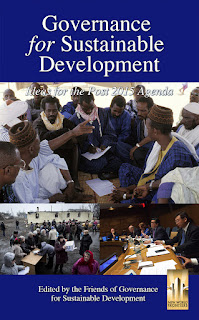Comments on the new Post 2015 text

Love the new preamble YES YES YES People need to read the SDGs and their targets and not a summary in a preamble. Well done Co-Chairs and secretariat !!!! I thought we all agreed cherish should go out of the text? Like most of the people here we are all David Cassidy Fans but its a bit much putting it into an intergovernmental text. If you want to be more supportive of David then join his fan club Wonderful to see hygiene; added to sanitation and water . Perhaps governments might like to consider this as a replacement . "A world which invests in its children, in which the rights and aspirations of all children are realized, and in which every child grows up free from violence and exploitation." There still seems to be a non recognition by some that sustainable development includes poverty eradication . The present wording seems to indicate that they are still two different things. "We recognize the intrinsic interlinkages between pover...


